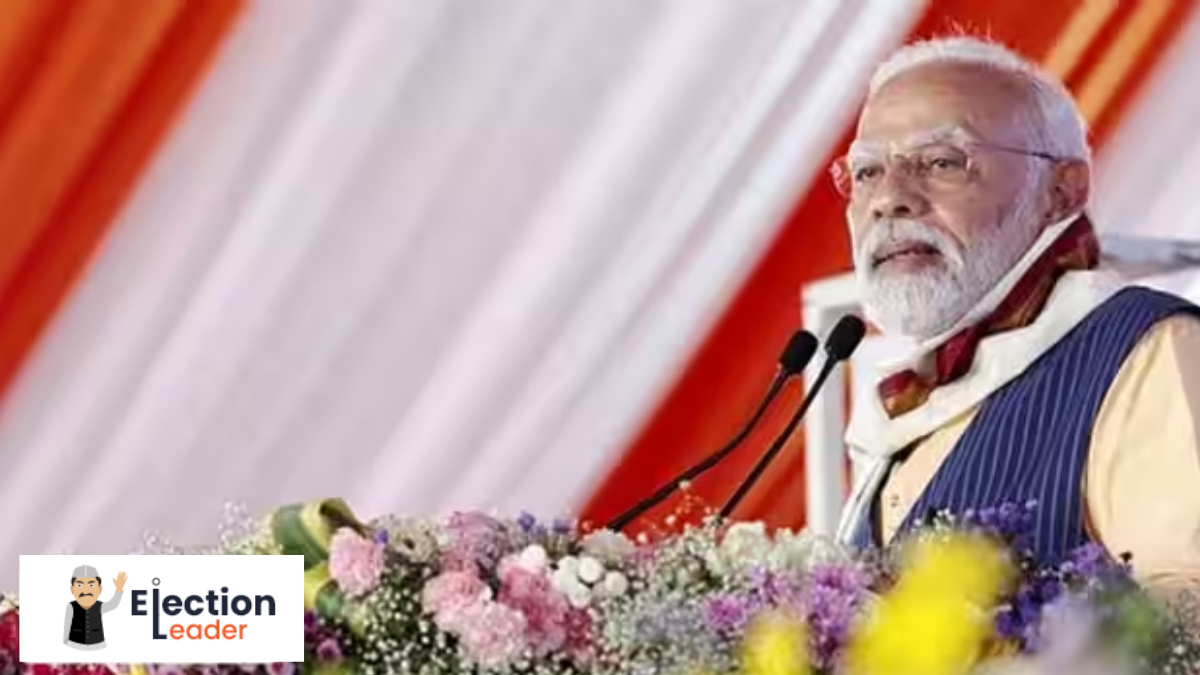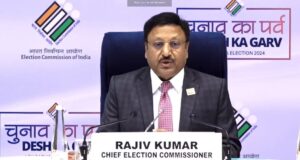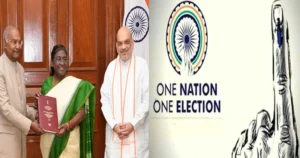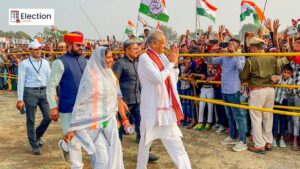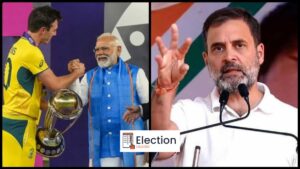The imminent delimitation problem, which is set to be decided in 2026, was broached by Prime Minister Narendra Modi for the first time on Tuesday while speaking at a rally in the upcoming election-year state of Telangana.
Modi addressed the issue head-on, stating that the South “stands to lose 100 seats” and making the same about the stance adopted by the Congress, in response to various leaders in the South expressing worry that delimitation based on population would lead to a decline in their representation in Parliament.
Speaking in Nizamabad, Modi referred to the demand for a caste census made by Congressman Rahul Gandhi during the most recent Karnataka Assembly elections as “Jitni aabadi, utna haq” to convey his point.
“The nation is now debating the subsequent delimitation. It will imply that Lok Sabha seats will decrease wherever there is a decline in population and an increase where there is an increase in population. The southern states have made incredible strides in population management, but they stand to lose much if the new concept of rights in proportion to population proposed by the Congress is put into practice.
100 Lok Sabha seats could be lost in South India. South India will they accept this? Will the Congress be pardoned in South India? I want to warn Congress leaders from deceiving the public. Make it obvious why they are participating in this game, Modi demanded.
Latest Blog: MP polls: BJP in control since 2003, and Congress making slow progress

The PM said: “I want to specify that this new thought (Jitni aabadi, utna haq) is injustice to southern India” and demanded that the INDIA alliance and Congress “clarify if they are against South India.”
Despite being a risky political move, BJP sources claimed that the PM had carefully planned it and that the party had prepared the ground in a region where it has little to lose. The North continues to be the party’s traditional base, and it is safe to assume that delimitation will benefit the BJP there.
Additionally, all parties must eventually swallow this harsh pill, and Modi may have threw down the challenge for the Congress to do so. Additionally, he killed two birds with one stone by employing a Rahul term and the Congress’ desire for a caste census.
The opposition’s call for a caste census, which aims to weaken the BJP’s hold on the OBCs, may find less support in the South, where intermediate castes dominate most states’ political systems.
According to BJP officials, Modi’s address contained advice for party leaders on how to frame the delimitation debate without ignoring the need to respect regional power dynamics.
In the past, M K Stalin, the chief minister of Tamil Nadu and a significant ally of the Congress, described the 2026 delimitation as a “Sword of Damocles” hanging over the heads of the southern states because they risk having fewer representatives in Parliament. Similar questions about whether the South was being “punished” for achieving population control goals established by the Centre itself have been raised by other CMs as well.
Latest Blog: Rahul Gandhi: The Future Of Indian Politics?
Table of Contents
ToggleThe Finance Commission example
The 2011 Census served as the foundation for the 15th Finance Commission’s devolution of federal tax revenue to the states. The southern states have argued that a population-based standard caused their portion of the tax devolution to decrease from 17.98% of the total in the 14th Finance Commission to 15.8% in the 15th.
Another cause of their anger is that the southern states, which make up 35% of the country’s GDP yet only include 20% of its people.
According to some projections, Tamil Nadu might see an increase of 10% (to 43, roughly, from 39 now), while Kerala (20 seats) might not see any change. Uttar Pradesh, which is already the most powerful state politically, could see a rise of 80% (or 144 seats, compared to 80 seats).
Given the overall rise in seats for the Lok Sabha in the North, this might effectively mean that the South will have less influence over decisions made at the Centre.
“According to the National Population Policy, the country’s population is expected to stabilize in 2026. As a result, until 2026, when we hope that the country’s population will stabilize, what was true up until 2000 will be attempted to be frozen, the official stated.
The country’s ability to meet its population goals by 2026 was questioned at the time by the opposition Congress. The opposition leader Shivraj Patil then remarked, “I find it very difficult to embrace this optimism. It was anticipated that the population might not rise in 1976. However, the population has grown. What is the assurance that the population will stay in its current location? It’s quite challenging for me to accept this logic.
Latest Blog: Is the BJP running the ED and CBI? AAP hits back as BJP claims documents implicate ‘high-level’ figure
The Modi govt & delimitation
In the delimitation committee established by the Vajpayee administration, former BJP Lok Sabha MP turned Congress leader Manvendra Singh, who represented his native Rajasthan, claimed the then-PM informally informed the panel members that there was an unofficial agreement among parties to maintain the balance of power among states.
Manvendra Singh noted that there are reservations about the Modi administration’s methods of operation. “Knowing how this government works, it may pass a Bill without taking the opinions of southern states into account. And by every assessment, states where the BJP is a dominating force—such as Uttar Pradesh, Bihar, Madhya Pradesh, Rajasthan, etc.—would come out on top. That would not do,” he declared.
Kanimozhi N V N Somu of the DMK is one of the MPs from the South who has brought up this matter in Parliament. When discussing the devolution of Central funding in the Rajya Sabha last year, she said: “It is completely absurd and unfair that states that have successfully implemented family planning are penalized, while states that are reckless are rewarded.”
Kerala’s CPI(M) Lok Sabha MP John Brittas made the following statement at a recent special session when talking about the “Parliamentary Journey of 75 Years”: “Kerala contributes Re 1 to the national kitty and gets back 25 paise.”
The party leadership is aware of the difficulties delimitation presents, the need to address them “sensitively,” and the reality that the process itself cannot be avoided, according to a top BJP politician from the South, who said that the opposition’s concerns are unfounded. There is no way around it. A constitutional process, organizing representation based on population has been postponed by previous governments. But it needs to be addressed right away,” the leader stated.
Rajeev Chandrasekhar, a union minister and BJP member of the Rajya Sabha from Karnataka, claimed that Modi’s Telangana address had highlighted the profound inconsistencies and hypocrisy within the INDIA coalition.
“On the one side, Congressman Rahul Gandhi is publicly stating that more seats should go to states with a higher population, or “Jitni aabadi, utna haq.” On the other hand, his coalition partner DMK is concerned about the loss of seats in southern states. The Prime Minister has stated that southern states will lose 100 seats if the nation adopts Rahul’s political platform.

